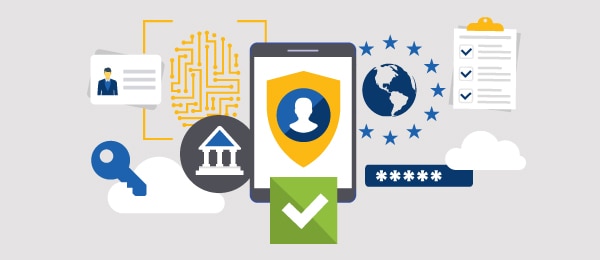
Thanks to a steady stream of data breaches, the number of data privacy and data protection regulations is growing and becoming more stringent. Historically, the EU has taken the lead with regulations, as is evident by AML, KYC and GDPR, but the U.S. is starting to take notice—the California Consumer Privacy Act, when it goes into effect in 2020, is expected to be the strictest data privacy law in the country.
Our new infographic explains five key compliance mandates you should know about, along with what to look for in a compliant online identity verification solution (check it out below). And if you want to learn even more about compliance, download our Compliance Made Simple e-book.

There’s a massive overlap between these regulations and online identity verification. Companies are trusting third parties such as Jumio to manage and handle a lot of personal information of their users, including ID documents, biometrics and other sensitive documents like utility bills.
But how confident are organizations in online identity verification providers like us? Are companies asking the right questions and ensuring that data is being encrypted, both in transit and at rest? Are they aware of what verification agents can see during the identity verification process and how much their data is being safeguarded? Given this massive intersection, companies must thoroughly vet vendors and ensure they can help (and not hurt) their own compliance efforts.
